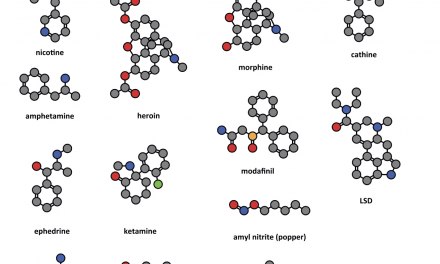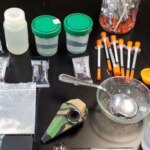Not the first time we’ve visited this topic, I admit. Nonetheless, it’s such an important subject I wanted to share this very even-handed, thoughtful overview on psychedelics. It’s from Leona Wen MD, a physician who writes often for The Washington Post on current medical topics. Here’s a link if you’re interested:
Psychedelics have great medical promise. That doesn’t make them safe.
(I didn’t encounter a paywall, so I’m hopeful you won’t, either.)
Dr. Wen is more optimistic than I am in terms of the potential usefulness of psychedelics as a widespread treatment for serious mental disorders. Still, like me, she’s concerned about the potential risks involved.
She may be right. The research on these substances has been done in closely controlled environments. I doubt that will be the setting where most future use will occur. These drugs are already commonly abused for purposes that we blithely dismiss as ‘recreational’.
As far as treatment: There’s a natural barrier to widespread clinical use, in that most ‘psychedelic-assisted therapies’ that have appeared to date are downright expensive. In Oregon, for instance, where the first clinic to employ psilocybin is located, costs for a single session run from $3,500 for a guided trip using 4 grams of the hallucinogen, to $2,800 for the reduced-price two-and-a-half gram experience. I’m not sure how you decide between the two. Either way, it’s still not exactly cheap.
I feel confident that the drug itself doesn’t cost anywhere near that much. So what’s the rationale behind the extra expense?
If the consumer happened to choose a less expensive alternative, such as a ketamine clinic, a single session might cost $400 (or as much as $800). That’s a bit better. However, the benefits of ketamine treatment require multiple sessions.
Even then, they wear off fairly quickly. Another course of treatment is required, as a ‘refresher’.
I have to think the appeal of such therapies would be mostly to people with means — from the upper income brackets. Those are the same folks who might self-pay for a month in a rehab facility. Sure, there’s always the possibility of insurance coverage, but third-party payers are understandably reluctant to approve costly new treatments when cheaper alternatives are available. So they might decide to restrict access to only the most severe cases, or where other options had already been exhausted.
Also, I expect the use of psychedelics to encounter political resistance in some more conservative states — well beyond the resistance to cannabis. These substances are seriously stigmatized. If I’m right, that suggests the emergence of a patchwork of clinics, in different locations, often necessitating travel.
It just adds to the expense.
Moving on, I’m fully in agreement with Dr. Wen that legalization of recreational use is flat-out risky. We have decades of experience with what happens when people take such drugs in clubs, at parties and raves and music festivals. Bad experiences are not exactly rare. Why isn’t this being discussed more in the popular media? It’s not as if the evidence isn’t there.
One thing is sure: When drugs of this kind are more widely used, we have to expect the number of bad outcomes to increase.
About the recent troubles at Burning Man: I’ve been hearing for years that drug use, particularly the mind-altering sort, is extremely common in that setting. Of the three former attendees I happen to know personally, two were longtime advocates of psychedelics before attending, and declared the experience ‘magical’. The third went along with her new boyfriend and didn’t take partake of the drugs offered. She reports the weekend was “boring” and “uncomfortable.”
I guess things in the desert really are better when you’re tripping.












